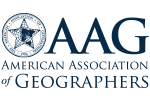A New Year, and Mixed Feelings


As the December solstice approaches and the days promise to get longer for those of us in the northern hemisphere, we often consider this a hopeful time in which to look forward to what comes next. Given how challenging 2024 has been for higher education and for geography in various parts of the world, I do so with mixed feelings. News of potential program and department closures—in the U.S. and in Australia—and reductions in funding for social sciences and humanities research (most recently to New Zealand’s Marsden Fund) combine with uncertainty for higher education more broadly as the next administration of the U.S. appears poised to eliminate the U.S. Department of Education, which administers Federal financial aid for students—among other plans that may impact higher education and research. Attacks on academic freedom and civil society continue. On many occasions, the AAG has written letters in support of individual scholars and departments or advocated for continued funding for scholarly research across the full spectrum of physical and social sciences and the humanities.
But nonprofits and professional associations such as AAG are themselves encountering strong headwinds. Conservative think tanks argue for policies that would effectively reduce funding for organizations like ours, which would make advocacy on behalf of geography and geographers more difficult. Agendas that weaken the work of scientific and professional associations—whose major goals are education and support for knowledge production and exchange—add to legislative efforts aimed at undermining civil society institutions more broadly. Just last month, the U.S. House of Representatives passed H.R. 9495 with 219 to 184 votes, largely along partisan lines, albeit with the support of 15 Democratic representatives. The bill (which has yet to pass in the U.S. Senate and get signed into law) seeks to imbue the Treasury department as part of the country’s executive branch with the discretionary power to declare an association as ‘terrorist’ and no longer eligible for nonprofit status—without requiring a proper inquiry first. This discretion, as the reactions of a large number of non-profit organizations show, is highly problematic because it stands to undermine advocacy and weaken civil society and democracy. And even if non-profit organizations are able to fight such designations, these fights will come at a high cost.
Strengthening the Foundation for Geography
In the context of such challenges, it feels at times daunting to work toward better futures. But that’s what AAG has been doing this year. Over the past several months, with sound advice from the Finance Committee, AAG Council has devised plans to rebuild financial reserves that were depleted in the Covid-19 pandemic. These plans put us in a better position for supporting geographers and geography programs into the future. We are also beginning work on our next long-term plan, which will outline our priorities for the coming 10 years and lay the foundation for our strategic planning process. And we have strengthened our connections to other geographic associations across the globe. This includes renewing our memorandum of understanding with The Geographical Society of China on the occasion of its 115th anniversary in 2024 and renewing our commitments to reciprocal membership with RGS-IBG (while ironing out some bureaucratic wrinkles in such reciprocity along the way.) Our international collaborations on education and knowledge exchange remain critically important because, as geographers well know, the challenges facing the world, including climate change, do not stop at national borders.
Looking beyond the AAG, there are encouraging developments to note as well. For the first time in years, public trust in scientists, which plummeted during the Covid-19 pandemic (in the U.S.), has improved. A new report released by the Pew Research Center in November 2024 indicates the first increase in public trust in scientists since 2020, which is particularly encouraging given continued attacks on science and higher education. The report shows that partisan differences in the public’s perception of scientists remain. But importantly, the majority of the U.S. public views scientists as intelligent and as “focused on solving real-world problems.” A recent panel hosted on the AAAS YouTube channel delves deeper into the report as different experts discuss their take on the data.
A new report released by the Pew Research Center in November 2024 indicates the first increase in public trust in scientists since 2020”
The Pew Research Center’s report identifies communication as one arena where there is room for improvement for scientists. This point shows the timeliness of efforts by AAG to Elevate the Discipline. Public and engaged scholarship is another way of addressing such perceived shortcomings in communicating knowledge beyond scientific venues. In a recent essay in its “Innovation in Action” hub, the American Council of Learned Societies (ACLS) highlights a successful, faculty-led initiative at the University of California, Santa Cruz, to change promotion and tenure guidelines for such scholarship. One lesson from this piece is that “Disciplines, and disciplinary associations, can provide leadership and support by publishing their own guidelines.” Incidentally, the AAG’s Task Force on Public and Engaged Scholarship, led by Past President Rebecca Lave, just concluded its work and, among other products, produced new guidelines for institutions on how to value and evaluate such work. These will be available on the AAG website soon.
Inspiration comes from yet other sources: In a strong rejection of what they term “the siege mentality in higher education,” Heather Hewitt and Stacy M. Hartman detail examples of innovation across undergraduate and graduate curricula in the social sciences and humanities on campuses across the U.S. While not mincing words in their criticism of how universities have been “breaking trust with many constituencies, including students, local communities, and the broader public,” their article emphasizes the dedication of scholar-educators to teaching, and to preparing students for meaningful careers. In advocating for what they consider “humanities vocationalism” for example, Hewitt and Hartman outline alternatives to simplistic notions of workforce preparation (a term that often headlines conservative reform demands for higher education). Their discussions also include interdisciplinary initiatives and innovation in Ph.D. programs that seek to better support Ph.D. students who are envisioning ‘alt-ac careers,’ that is, non-faculty careers in academia or outside of the academy. There is much food for thought here for geographers to think carefully about how we prepare our Ph.D. students, and how we can better serve them given the fact of a declining academic workforce and a wealth of career opportunities outside of the academy. These are important questions for geographers to take up, including at our annual meetings.
As I finalize this column, preparations for our 2025 Annual Meeting in Detroit are well underway. In keeping with AAG’s commitment to building stronger ties to the cities and regions that host our meetings, returning-generation farmer and scholar-educator shakara tyler kicked off our series of webinars with a discussion of Building Black Food Sovereignty in Detroit. This first webinar will be followed by Robert Nelson offering insights into the foodways of Arab Americans and Arab Canadians in the Detroit region on January 22, 2025. On February 13, 2025, Michelle Martinez will discuss environmental justice, climate change, and energy. We have several more webinars planned in the coming months. All of our planned webinars feature scholars or activists with longstanding ties to the city and region. Beyond introducing AAG members in more depth to the host city for our 2025 Annual Meeting, it is my hope that these webinars will serve our members after the conference, for example in their teaching and in outreach that explains why geography matters.
I began this column with mixed feelings in light of the challenges and uncertainty this year has brought. But in the end, one sentiment prevails: profound gratitude. Gratitude for the immense dedication that AAG staff has shown this year despite dealing with difficult cuts and personnel restructuring. Gratitude for the numerous colleagues who have volunteered their time, energy, and wonderful insight as they serve on AAG Council, our numerous standing committees and task forces, and the boards of our specialty and affinity groups. Gratitude, as well, for all the outstanding scholarship, service, and teaching that we are able to honor with our awards. All of this collective work does indeed defy a siege mentality and is deeply encouraging. Thank you.
Please note: The ideas expressed in the AAG President’s column are not necessarily the views of the AAG as a whole. This column is traditionally a space in which the president may talk about their views or focus during their tenure as president of AAG, or spotlight their areas of professional work. Please feel free to email the president directly at P.Ehrkamp@uky.edu to enable a constructive discussion.

